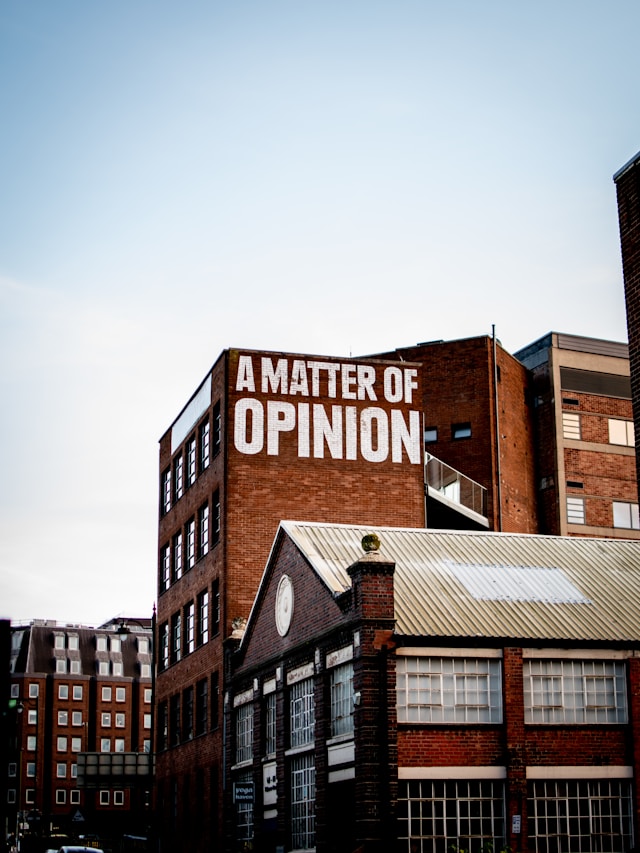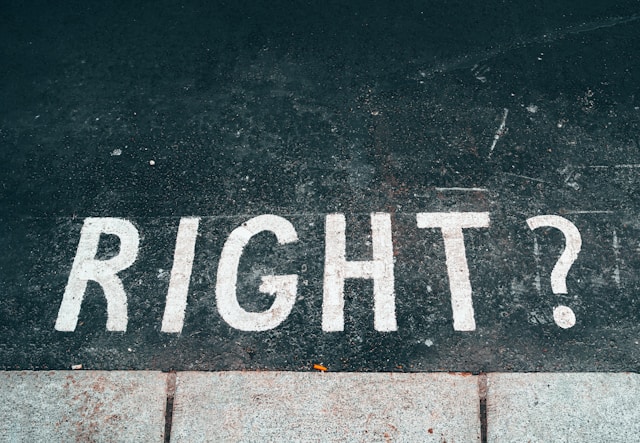You may desire to never have someone form a negative opinion of you, but can you dictate or control the opinions other people form? Since you don’t control the brain machinery or beliefs of others, you likely can’t. You can, however, influence the opinions of others based on what you say and do, but the final opinion is ultimately up to the external party and whatever their brain forms.
In the “Not doing things that are commonly seen or expected of you” solution, we saw that some humans believe there’s a rulebook that everyone should follow. If you don’t believe in that rule book, it is possible and perhaps likely that those people will have a negative opinion of you. In fact, what is a negative opinion? When people say “negative opinion,” they’re often referring to labels or descriptions that people classify as “bad”. As a result, some of us knowingly or unknowingly think we should feel bad whenever we or someone else has a negative opinion of us. You may, at times, overlook that deep down, you may disagree with the reasons why someone has a negative opinion of you.
Overcoming this trigger
To overcome this trigger, you have to realize that what usually matters at the end of the day is your goals. Unless you have a goal of “No one should have a negative opinion of me,” there will likely be times when you can safely ignore opinions because they have no impact on your goals.
If you think a negative opinion from someone will or does impact your ability to achieve a goal, we encourage you to validate that assumption. You may think that getting what you want depends on what people think of you, but you can also get what you want by having and offering something that other people want or need. If things you want depend on the opinions of others, you might want to rethink if you really want those things.
Viewing the opinions of others as a reason to feel bad
You may do this as a way to remind or show yourself that you don’t want to others to have negative opinions of you. In other cases, you may feel bad when people have certain opinions of you because deep down, you don’t agree or believe those opinion(s) are accurate or correct.
If internal peace and being anxiety-free is your goal, you don’t have to view other people having or potentially forming negative opinions of you as a reason to feel bad or anxious.
If someone formed/forms a negative opinion of you for a valid reason, you can take steps to correct whatever mistakes you made. You can do this without viewing your mistakes as a reason to feel bad. You may think that feeling bad is the “human” thing to do, or if you didn’t feel bad, you wouldn’t change to avoid making the same mistake.
Why you don’t have to feel bad to change or improve
Until proven otherwise, everything has consequences. Because of this, there is usually an immediate or long-term consequence to any decision you make. Since you want what you want, you will make decisions that increae the chances of getting what you want–if you care about your interests.
Do you have to feel bad to pursue what you want? Some people may disagree with your decisions, but you’re a unique being that may have unique interests and desires. If your decisions are leading to consequences you dislike or want to avoid, you’ll naturally build the desire to change or at least consider changing your actions, decisions, and decision-making process.
Some people may try to motivate you by making you feel bad
Some people may call you names to make you feel bad so you’ll feel motivated to make a change. At times, the change they want will benefit them more than you. The change they want you to make may be something you naturally want to do.
This feel-bad to motivate tactic can work if you knowingly or uknowningly hold the belief that you have to make a change whenever you feel bad about something. The feel bad to get motivated tacic can also work if you knowingly or uknowingly think there are certain situations that you should feel bad in when you’re labeled or called certain things. When you choose internal peace, you will no longer view negative opinions or name calling as a reason to feel bad.
When people want you to make changes you don’t really want to make, you’ll proably lack the motivation to do it.
People who want you to do things you don’t care for probably don’t know, understand, or are ignoring the principle of fair exchange. If so, they’re likely prioritizing their interests over yours. You’re both human beings so their intersests don’t have to be more important than yours? If people don’t value your interests to the same degree as theirs, you’ll probably be less motivated to do what they want from you.
If you have a goal to never have a negative opinion formed of you
Why? Until proven otherwise, you have reasons why this is a goal. There’s a chance this is an adopted goal from someone you currently or used to admire. How does this goal (no one having negative opinions of you) help you get what you want?
If you think goal actually helps, there are often more effective strategies for getting what you want than trying to avoid people having a negative opinion of you. Look at how many people speak negatively about celebrities and public figures. If people with public relations teams have people forming negative opinions of them but are still getting things people want it’s possible if not probable to get what you want even if people have negative opinions of you.
This clip from Elon Musk, the richest man in the world at the time of the clip can help. He said, “I have no issue being liked….being liked is a weakness” in a New York Times interview(4:56-6:17).
People won’t always know your true intentions and how you think
Because of this, some of your actions may be taken the wrong way or misinterpreted. It’s up to you to realize that you don’t have to take those misinterpretations as reasons to feel bad. We put forward that again, what matters is your goals. If these misinterpretations have no impact on your goals, there is likely little value in caring about them. If misinterpretations impact the ability to achieve your goals, you can address the situation if you’d like. If misinterpreations–from others–impact your goals, you don’t have to view this as a reason to be anxious or feel bad. If you don’t adopt this thinking, people forming negative opinions of you will continue to trigger your anxiety or make you feel bad.
If you’re asking, “Why would I view anything as a reason to feel bad?” We suggest you read the anxiety paradox.
Recommended reads for overcoming social anxiety
There’s more
If you struggle with low self-esteem, self-consciousness, low self-worth, or low self-confidence, we encourage you to view our self-help solutions for these and other common psychological challenges.
Looking for more?
If you’d like to dig deeper or want 1on1 help let us know. Otherwise, we suggest leaving a comment so our experts or someone in the community can help you.
Have something to add?
If you have insights to share or a question we’d love to hear it. Contribute
Recommended reads for overcoming social anxiety
There’s more
If you struggle with low self-esteem, self-consciousness, low self-worth, or low self-confidence, we encourage you to view our self-help solutions for these and other common psychological challenges.
Looking for more?
If you’d like to dig deeper or want 1on1 help let us know. Otherwise, we suggest leaving a comment so our experts or someone in the community can help you.
Have something to add?
If you have insights to share or a question we’d love to hear it. Contribute

